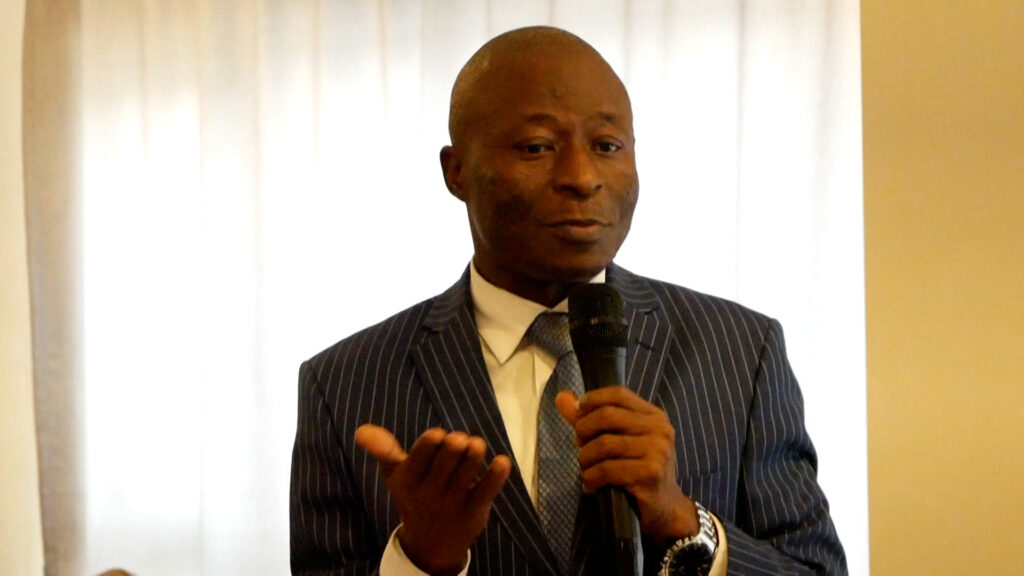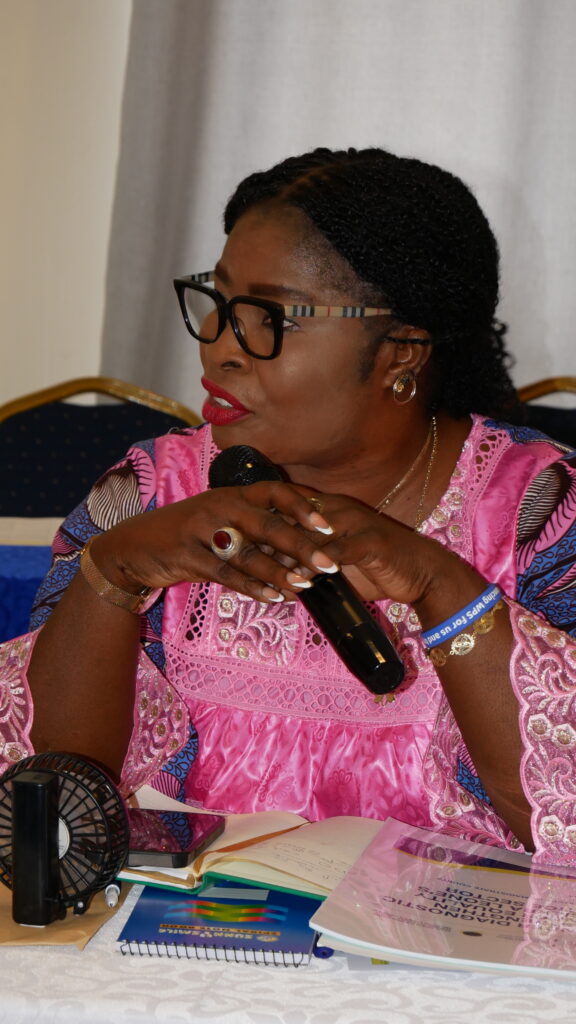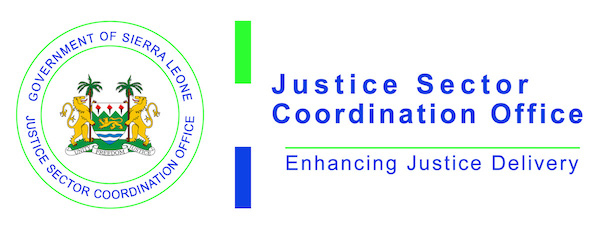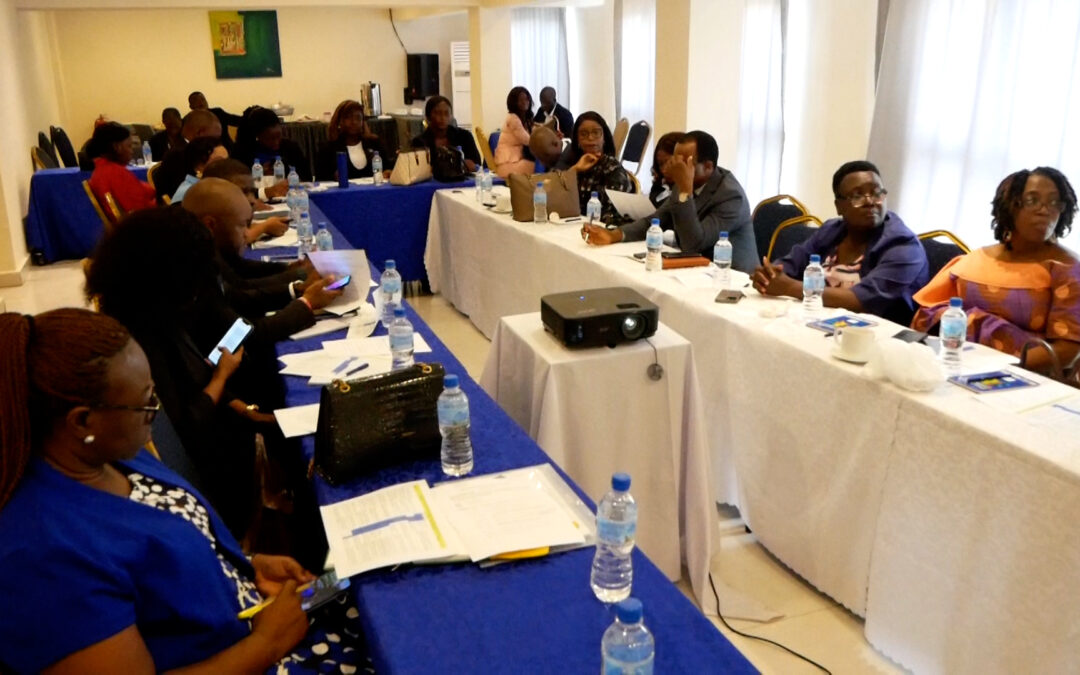The Justice Sector Coordination Office (JSCO), in collaboration with The Carter Center, convened a high-level review meeting with justice sector stakeholders to discuss progress on the implementation of the Gender Equality and Women’s Empowerment (GEWE) Act, 2022 in the justice sector. The review, held at the New Brookfield’s Hotel in Freetown, was held as part of sector’s commitment to promot a gender-responsive and inclusive justice system in Sierra Leone.
The meeting united senior representatives from the Sierra Leone Judiciary, the Office of the Attorney General and Minister of Justice, the Ministry of Gender and Children’s Affairs, the Ombudsman’s Office, the Human Rights Commission, the Law Reform Commission, the Anti-Corruption Commission, the Office of the Administrator and Registrar General, L.A.W.Y.E.R.S and Advocaid. The review provided a platform for stakeholders to reflect on achievements, discuss emerging challenges, and identify key actions to advance gender equality across the justice sector.

In his opening statement, the Coordinator of the Justice Sector Coordination Office Mr. Shahid M Korjie emphasized the strategic relevance of the GEWE Act 2022 within the Justice Sector Reform Strategy (2024–2030), particularly under Strategic Objective 3: “Enhanced Adherence to Human Rights and the Rule of Law.” He underscored the integration of GEWE-related initiatives across 17 justice sector institutions through actions such as the implementation of the Act, strengthening responses to sexual and gender-based violence (SGBV), and capacity building on gender-sensitive practices.
The Project Coordinator, Carter Center – Mr. Jalloh, revisited the findings of the Gender Diagnostic Study conducted under the Gender Equality and Rights (GEAR) Project—a pilot initiative supported by The Carter Center. While the diagnostic originally focused on magistrate courts, stakeholders called for broader surveys to reflect realities across all judicial levels and related justice institutions.
The Hon. Chief Justice was represented by the Hon. Justice Alusine Sesay (JSC), Justice Bintu Alhadi (JA), Justice Tonia Barnette (JA), Justice Simeone Alieu (J). Also present were the Minister of Gender and Children’s Affairs – Dr. Isata Mahoi and the Ombudsman – Tejan Ahmed Israel Jah Esq. In his opening remarks, the Hon. Justice Sesay (JSC) observed that the Sierra Leone Judiciary has traditionally recognized and integrated gender parity into in their work. He reminded stakeholders that the Sierra Leone Judiciary had its first female Chief Justice at a time when other jurisdictions were struggling to appoint female judges. Justice Bintu Alhadi (JA) and Justice Tonia Barnette (JA) expressed strong concerns regarding the diagnostic survey’s limited scope to the magistrate courts and not the entire judiciary. They all reiterated the Judiciary’s longstanding commitment to impartiality and fairness, stressing that promotion and appointments have always reflected gender balance. “As judges, we apply the law. Gender parity has never been a barrier in our decisions or appointments,” noted Justice Tonia Barnette (JA).

Other participants recognized that while institutional policies may appear equitable on the surface, underlying issues around awareness, training, and public trust in justice delivery systems still need to be addressed. The Ombudsman added that most gender-related complaints stem from administrative processes rather than over discrimination, calling for deeper review of HR practices and workplace culture.
The review also highlighted notable progress despite existing resource constraints. The Judiciary has established a communications Directorate and integrated GEWE-related content into its official website to improve public awareness.
The Ministry of Gender and Children’s Affairs confirmed that the regulation for the GEWE Act 2022 have been laid before Parliament and are awaiting the Certificate of Maturity. It was also reported that the Sierra Leone Police, Fire Force, and the Military have each developed gender policies aligned with the Act’s provisions. Civil society partners such as AVOCAID continue to support the capacity-building efforts of CSOs for effective gender mainstreaming. Cross-sector collaboration has also advanced, with the JSCO playing a coordinating role in the development of a national work plan and monitoring framework.

However, several critical challenges remain. These include limited financial and technical resources for gender training and institutional reforms, insufficient data collection systems to track implementation progress, and structural silos that impede cross-sector coordination.
The Minister of Gender and Children’s Affairs, Dr. Isata Mahoi emphasized the urgency of action, stating, “For every law passed, it is the justice sector that breathes life into it. Lack of resources cannot be an excuse for inaction.” To address these challenges, stakeholders proposed the review of existing institutional policies to ensure gender sensitivity, expansion of public sensitization efforts using existing platforms, and regular GEWE Act 2022 implementation review meetings with broader stakeholder inclusion.

The Carter Center’s Associate Director, Ms. Kari Machey, reaffirmed the Center’s commitment, stating, “The GEWE Act is not just about representation—it is about institutionalizing gender equality and transforming judicial culture.” The meeting concluded with a unified vision: building a justice system that is inclusive, equitable, and truly representative of all Sierra Leoneans. As implementation progresses, the JSCO and its partners remain resolute in their mission to transform policy into tangible outcomes for women and girls across the country.
Justice Sector Coordination Office _Communications Unit

